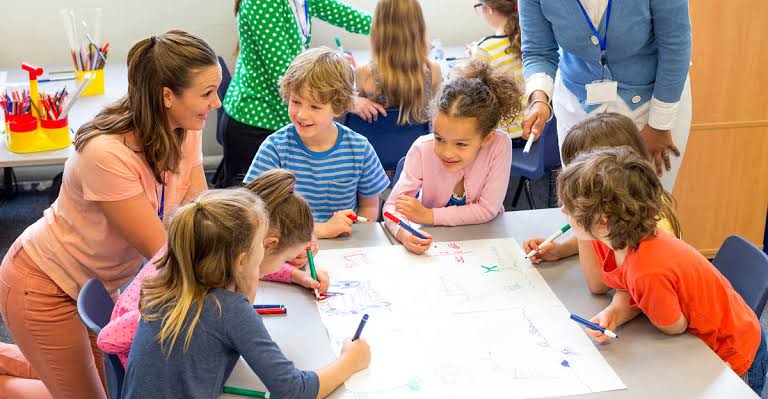Social-Emotional Learning is the process of developing self-awareness, self-control, and interpersonal skills that are necessary for school, work, and life success. Strong social-emotional skills enable people to cope better with daily challenges and benefit academically, professionally, and socially.
From effective problem-solving to self-discipline, impulse control to emotion management, and more, SEL provides a foundation for positive, long-term effects on children, adults, and communities.
One of the most important places for students to learn social and emotional skills is at school. SAFE is an acronym for four factors that should be included in an effective Program:
Sequenced: A series of activities that are linked and coordinated to promote skill development.
Active: Active learning methods that assist students in mastering new skills.
Focused: The emphasis is on personal and social development.
Explicit: Specific social and emotional skills are being targeted.
To succeed in college, careers, and personal and public life, students require more than just academic knowledge. They must be aware of their own abilities and skills, be able to control their emotions and behavior, communicate effectively, negotiate conflict, show concern for others, and make responsible decisions. Student success is based on social and emotional skills, which also help citizens become better citizens.
Educators and researchers are increasingly accepting of social and emotional learning (SEL) as a process for cultivating life skills that promote personal development, academic achievement, and a more empathic school climate. Many schools have incorporated SEL into their curriculum and taught it, but educators and policymakers are still working to better understand the most effective strategies for district-wide implementation.
Here are 7 incredibly simple ways to help your students with social-emotional learning on a daily basis:
- Initiate the day with a check-in: Even if you’re teaching virtually, it could be as simple as giving a warm greeting to each person as they arrive in the morning or asking a question.
- Take advantage of teachable moments during storytime:
Read-aloud is an excellent way to engage your students in discussions about social and emotional issues. - Teach children how to collaborate in a group:
Working in a group environment is a valuable life skill. Students will learn how to negotiate with others, develop leadership skills, and identify their strengths so that they can contribute to the group to the greatest extent possible. - Role-playing is a great way to improve your acting skills:
Role-playing difficult or troubling situations that arise in the classroom helps students develop empathy and understand the feelings of others. - Allow for talk time: Provide plenty of opportunities for kids to talk to one another throughout the day, both structured and unstructured. Your students will gain understanding and confidence by bouncing ideas off one another or figuring out problems with a little give-and-take.
- Play games to foster a sense of community:
Social and relationship skills can be improved through cooperative learning games. There are a plethora of resources available for classroom activities. - Develop stronger bonds:
Allow your students to conduct interviews with one another throughout the year on topics such as cultural background, family traditions, and current events. A formal interview differs from a casual conversation in that it teaches skills like focused listening and conversational abilities. Furthermore, learning about their classmates will broaden their perspective because they will realize that everyone’s background and experience are not necessarily the same as theirs.
Students’ academic success is influenced by well-implemented SEL programs. Social-emotional skills, such as problem-solving, self-regulation, impulse control, and empathy, have been shown in studies to help students improve their grades, reduce negative social behaviors like bullying, and create positive classroom environments.
Social-emotional skills also aid in the successful management of daily life for children. They assist students in focusing, making sound decisions, and becoming active members of their communities outside of school hours.
Emotion management, problem-solving, responsible decision-making, self-regulation skills, and maintaining healthy relationships are all important life skills that contribute to a well-functioning, compassionate society. These skills enable people to adapt, be resourceful, and work well with others, and they’re all taught in SEL programs, similar to emotional intelligence.
SEL can be cultivated in a variety of settings other than the classroom. Because SEL begins in early childhood, the importance of family and early childcare settings cannot be greatly exaggerated. Higher education has the potential to promote SEL as well.
Visit for more information on the most recent advances in SEL research, practice, and policy.https://www.edutopia.org/blog/why-sel-essential-for-students-weissberg-durlak-domitrovich-gullotta

